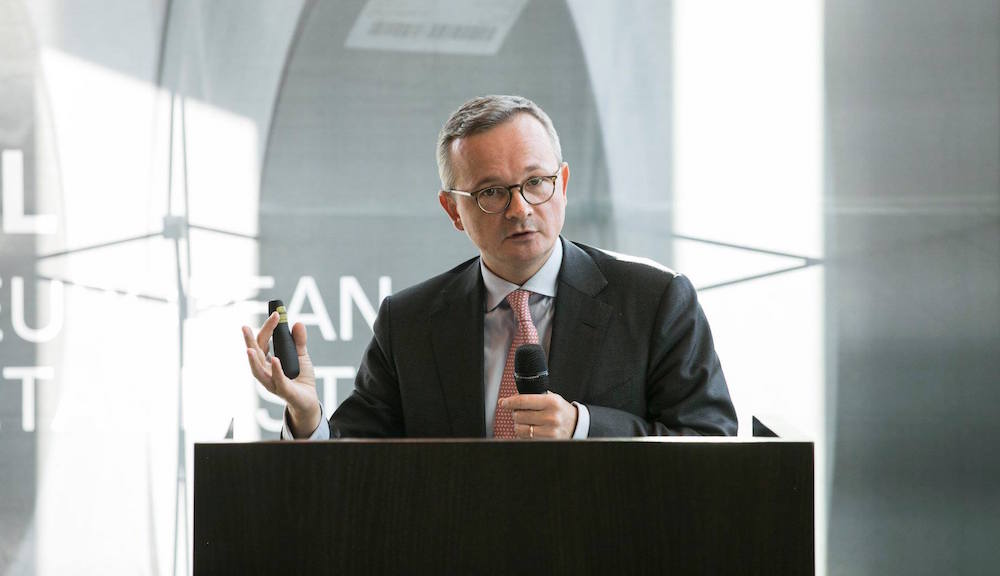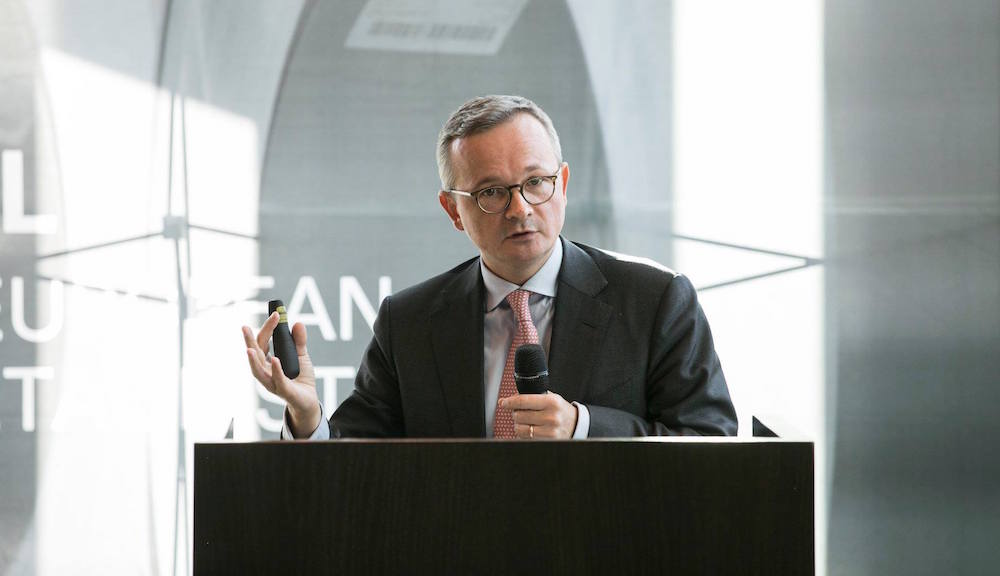Definitive measures in the European Union’s safeguard case on steel product imports may be imposed in the form of country-specific quotas for some products, according to Yuriy Rudyuk, partner with Brussels-based law firm Van Bael & Bellis.
Further, the number of product categories affected could be reduced from the initial 23, while some categories might include fewer products when the European Commission (EC) announces its definitive decision in the case, Rudyuk told delegates to the EUROMETAL Steel Net Forum & International Steel Trade Day in Hamburg, Germany, on Tuesday October 9.
The EC imposed preliminary measures in the safeguard case on July 18, in the form of tariff rate quotas on 23 steel product categories, based on average import volumes over the past three years. Imports will face a 25% tariff if a quota is exceeded.
The provisional measures will remain in place for a maximum of 200 days.
Originally, the case was opened into 26 steel product categories in late March, in an attempt to prevent steel shipments being redirected to the EU as a result of the Section 232 import tariffs imposed by the United States. Two more products were added to the list in late June.
The development in the current case is similar to the safeguard investigation that was opened in 2002, according to Rudyuk.
“The case in 2002 is a good example of how the Commission is likely to behave in the present case,” he said.
In 2002, the EC opened a safeguard investigation in response to trade measures started by the US, and while it included 21 product categories when it was opened, that number went down to 15 categories when provisional measures were set. Ultimately, definitive measures were applied to only seven product categories.
“[A total of] 23 product categories are subject to provisional measures [in the current case, but] we expect that some product categories will be exempted at the definitive stage,” Rudyuk said.
“We see a number of product categories which are at present subject to provisional measures, but we see no legal or economic grounds to [continue to include them],” he added. “Some of the products are not even subject to a commodity trend.”
In 2002, the measures that were applied took the form of tariff quotas based on historical import levels, with an added 10%.
“At the definitive stage [in 2002], there were country-specific quotas applied, except for hot-rolled coil [HRC],” Rudyuk said. “I think we will see country-specific quotas for a number of product categories [in the current case].”
Countries that supply a 5% share or more of the total imports of a particular product are likely to be subject to a country-specific quota.
But for some product categories there will be a global quota. The EC is under pressure from importers of some products, so it needs to keep the market open and not to impose restrictions that would be too severe.
For example, suppliers from China, and from Russia, Ukraine, Brazil and Iran, which had historically supplied the majority of HRC to the EU, were hit by definitive anti-dumping duties last year.
“Individual country-specific allocations for these countries would not allow them to use the volumes [without sanctions] because of the application of the [pre-existing] anti-dumping duties,” Rudyuk said.
European mills managed to achieve some price rises in August because of the positive sentiment after the preliminary finding in the case was announced. But prices then fell in September due to slow demand and competitive offers from Turkey.
Fastmarkets’ weekly price assessment for domestic HRC in Northern Europe was €560-575 ($643-660) per tonne ex-works on October 3.
European steel importers have said that they need guarantees that the volumes that the EC allocates to suppliers will be used by exporters.
And Rudyuk added that “there is still a possibility that a licensing system will be introduced.”
In the 2002 safeguard case, a licensing system was introduced at the definitive action stage, and importers then required licenses from the EU authorities before being allowed to import steel.
Some buyers were now trying to refine the definitions of certain product categories, because within some categories there were products which went to different end-user sectors.
“We also know that, at the moment, there is a very active group of companies that is trying to obtain exemption for automotive flat steel products from the current product categories. That is another [area] where we could see narrowing of product category definitions,” Rudyuk said.
The EC intends to release definitive findings in the safeguard case in late November or early December this year. All interested parties will then have 10 days to comment, and then there will be an additional stage when suppliers can request consultations with the EU.
After the consultations, the EC will propose the imposition of the definitive measures to the EU member states, for a vote in January 2019. Definitive measures would come into force at the end of January or early in February next year.
Maria Tanatar, fastmarkets.com






